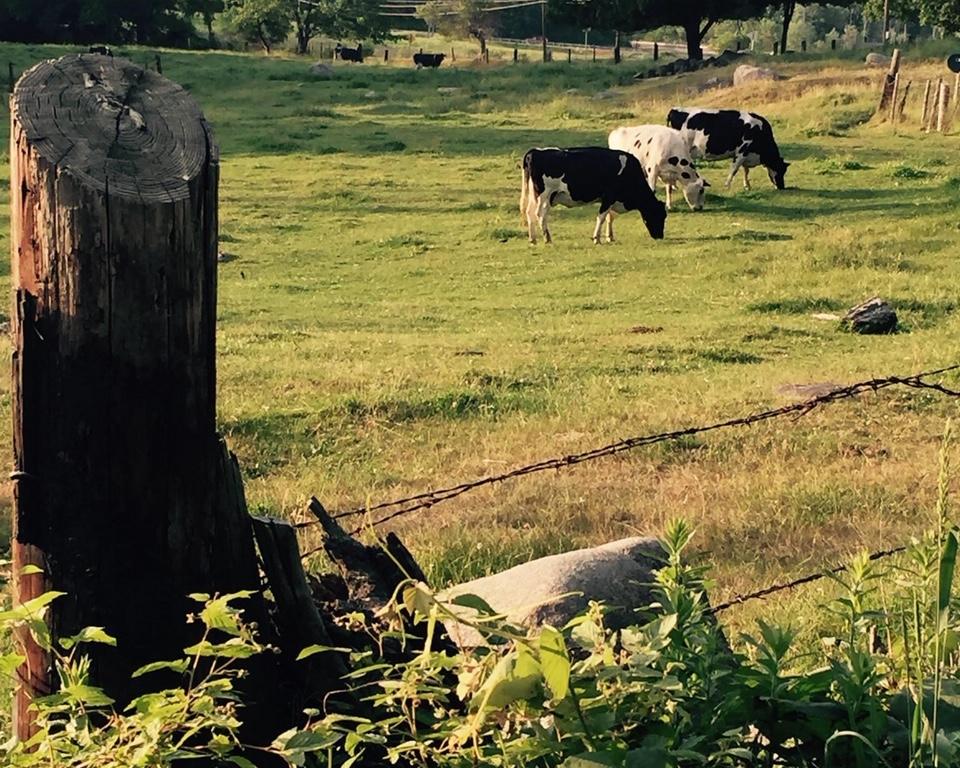By JULIE CUNNINGHAM
Photo provided by Hunt Farm
(Franklin County, MA) – Jim Hunt, owner of Hunt Farm in Orange, is producing 15 percent less milk than he’s used to, and not by choice.
That’s because his biggest customers, schools and restaurants, are all completely shut down. This accounts for the large gap between production and consumption that is hurting the dairy industry.
”A huge surplus of milk just cannot be sold,” said Hunt.
For Hunt, the problem is bigger than just supply and demand. Like many Americans, he has grandparents he is worried about. His grandfather wants to get out and help, but it’s just not practical.
”I can’t sanitize the tractor,” Hunt explained.
Hunt isn’t alone. Darryl Williams, owner of Luther Belden Inc. in Hatfield, and board member of the Massachusetts Association of Dairy Farmers, has cut production by 6 percent. Both farmers are still producing more milk than needed, and while Hunt isn’t personally dumping any milk his distributors are.
Williams is only milking 151 cows right now. Williams explained that although many dairy farmers around the state have cut back production, the measure is relatively new and the effects won’t be realized until at least June. Williams can’t donate any milk to charity because he produces raw milk and requires a special permit. His only choice is to sell his milk directly to his distributors.
“We are trying to do our part,” Williams explained. “We don’t want to be dumping.”
Jen Ciesluk, owner of Ciesluk Farm and Ciesluk Farmstand, has a different problem. Although her business isn’t experiencing a demand shortage, her day to day running of the business has been complicated by shortages in hand sanitizer, gloves, and personal protective equipment, or PPE. Although social distancing is easy out in the field, according to Ciesluk, her worry is that she won’t have the supplies she needs at her farmstand to weather the storm.
Senator Jo Comerford is newly appointed to the Food Security Task Force, charged with strengthening the Commonwealth’s response to food insecurity during COVID-19. Comerford, like many of her fellow lawmakers, is aware that the problems surrounding the pandemic are complex. As a member of the task force, her goals include addressing immediate hunger needs and food insecurity, transforming the food system, and helping the supporting local agriculture to make sure Massachusetts farmers survive.
”Helping farmers means helping people who need food,” said Comerford.
Comerford said the Task Force is asking for $17 million for the Healthy Incentive Program, or HIP. HIP is a program that uses state money to double SNAP purchasing power if the customer buys locally produced food. This program not only increases the amount of food SNAP recipients can purchase, but also increases the demand for locally produced food here in the Commonwealth.
Comerford is also hoping to get farmers a boost in the services offered to them during the pandemic. Specifically, access to emergency drive through testing facilities like the facility at the Big E and equal access to PPE. Protecting the supply line, as well as rebuilding the markets, is the way to go to keep farmers working and address food insecurity here in the Commonwealth.


